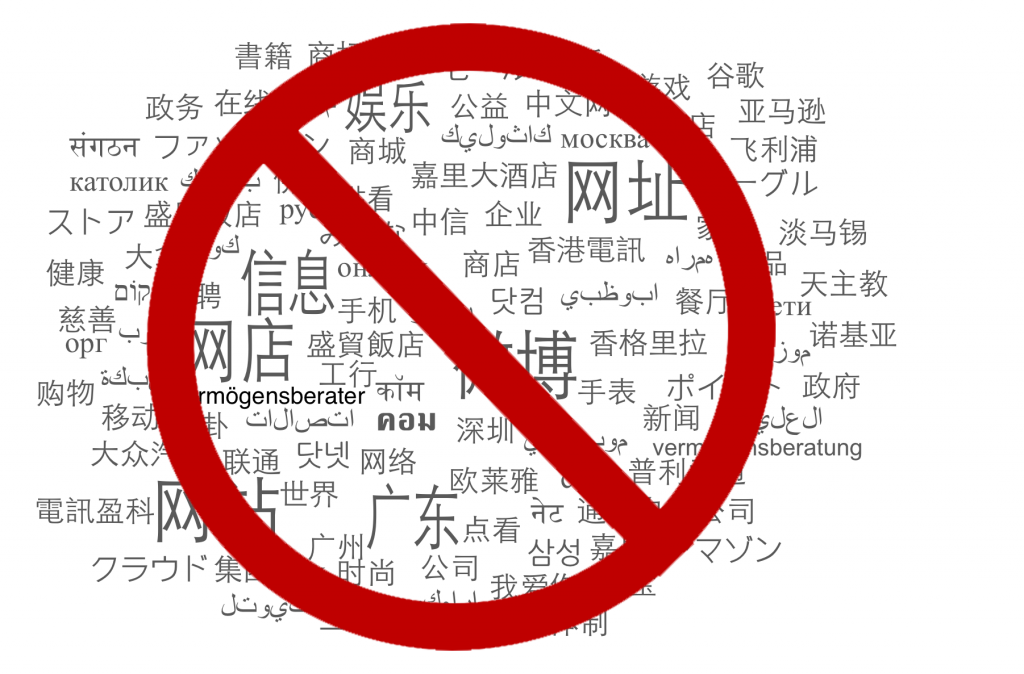UNESCO on IDNs: Techies, get your house in order

By Emily Taylor
Irina Bokova, Director General of UNESCO, yesterday issued a statement on linguistic diversity on the Internet. The focus of the statement was Internationalised Domain Names (IDNs). It has been possible for Internet users to register IDNs for over a decade, and since 2009 a series of country code IDNs have become available, for example, Russian Federation, Republic of Korea, Qatar, China. Progress on IDN deployment is being tracked in the annual EURid/UNESCO World Report on IDNs.
Ensuring universal resolution of domain names in every script is a complex technical task, and Bokova rightly praises the technical community for their achievements.
On the content side, the news is positive. In the past four or five years, web content has become much more linguistically diverse, and last year’s Broadband Commission Report predicted that by 2015 Chinese would become the largest single web language.
In contrast, adoption of IDNs is stuttering. On the positive side, there are approximately 5 million IDNs in existence, and countries are continuing to innovate and explore ways to make their offering more attractive. For example, Vietnam has achieved over 800,000 IDN registrations in a year by giving them away for free. Reports from the Russian Federation continue to be positive, especially about user acceptance.
The uncomfortable fact remains, however, that using IDNs is painful. It takes a level of focus and devotion that few if any have for a domain name. Browsers handle IDNs inconsistently – often displaying a meaningless string of letters and numbers. This is confusing for a user, because they have no visual confirmation that the site they thought they were visiting is not a spoof.
Until last year, it was not possible to send an email using IDN. 2012 saw the completion of the necessary technical standards, and the successful sending of the first IDN email message.
Bokova is right that the next obstacles to more widespread adoption are technical. Not at the standards level, but application providers, browser manufacturers, search engines, mobile device manufacturers hold the key. You can’t open a Facebook account with an IDN. Even Chinese and Russian search engines don’t display IDN links. You can’t send an IDN email.
Unless this changes, we risk a divergence between the Net’s navigation system (which continues to be ASCII/English language dominated) and online content (in which linguistic diversity is thriving). The progress of online linguistic diversity proves what we knew anyway – people want to write, read and communicate in their own language. But if they can’t read the road signs, the Internet’s navigation system – how is anyone going to find their way around?
Bokova asks the technical community “to untangle these issues and release the full power of the Internet,” and notes that “we need the support of all actors to make this a reality”. The standards are there – it’s now up to vendors, mobile manufacturers, search engines and social networks to do their bit.

